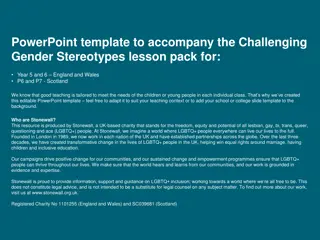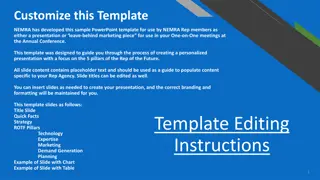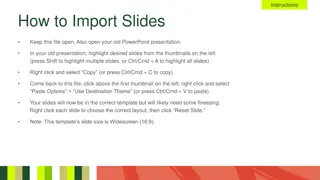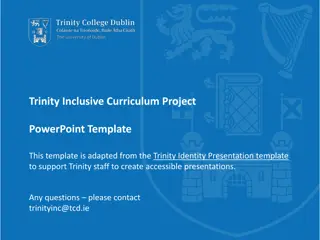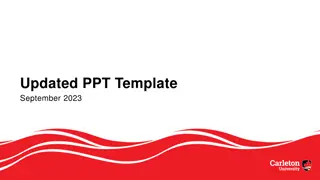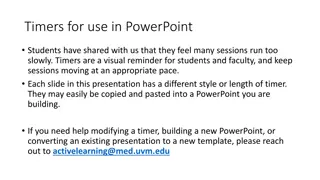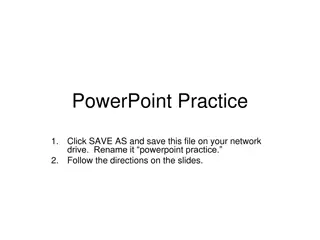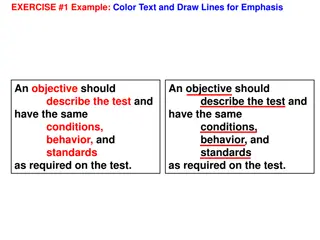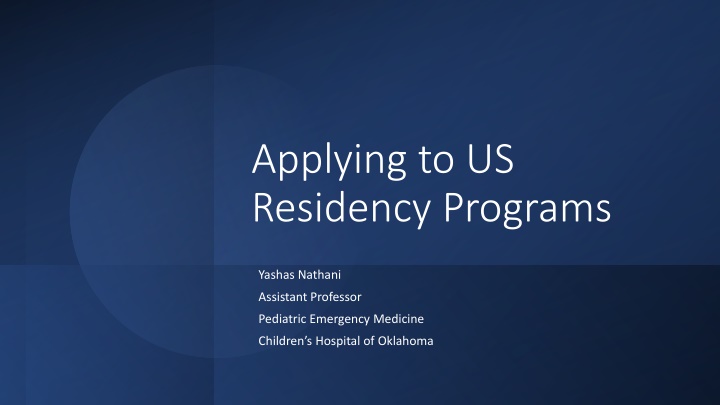
Navigating US Residency Programs for International Medical Graduates
Discover the essential steps and requirements for Canadian medical graduates applying to US residency programs, from ECFMG certification to USMLE exams and application processes. Gain insights into credentialing, field selection, ERAS submission, and matching timelines for a successful journey into US Graduate Medical Education.
Download Presentation

Please find below an Image/Link to download the presentation.
The content on the website is provided AS IS for your information and personal use only. It may not be sold, licensed, or shared on other websites without obtaining consent from the author. If you encounter any issues during the download, it is possible that the publisher has removed the file from their server.
You are allowed to download the files provided on this website for personal or commercial use, subject to the condition that they are used lawfully. All files are the property of their respective owners.
The content on the website is provided AS IS for your information and personal use only. It may not be sold, licensed, or shared on other websites without obtaining consent from the author.
E N D
Presentation Transcript
Applying to US Residency Programs Yashas Nathani Assistant Professor Pediatric Emergency Medicine Children s Hospital of Oklahoma
Canadian citizen Graduated from American University of Antigua College of Medicine May 2014 Pediatrics Residency St. Peter s University Hospital, NJ 2014-2017 J1 Visa Pediatric Emergency Medicine Fellowship University of Oklahoma, OK 2017-2020 J1 Visa + Couples Match Attending Physician July 2020 J1 Waiver (H1B) My Story
1. ECFMG - The Educational Commission for Foreign Medical Graduates Assesses whether IMGs are ready to enter ACGME-accredited training programs in the US Must be certified by ECFMG before USMLEs/Residency www.ecfmg.org 2. USMLE Step 1, Step 2 CK, Step 2 CS* Time sensitive Meet exam requirements (in or after medical school) www.usmle.org Steps
3. Medical Education Credentialing Requirements Medical school and graduation year are listed in the World Directory of Medical Schools Awarded credit for at least 4 credit years of medical school Documentation for completion of all credits & receipt of a final medical diploma Final medical school transcripts Steps
4. Applying to US Graduate Medical Education Programs Identify the field of medicine of interest Review state-specific requirements (https://www.fsmb.org/advocacy/) Review residency programs + requirements (https://www.ama-assn.org/residents- students/match/freida) Complete and submit application through ERAS - Electronic Residency Service Application (https://www.ecfmg.org/eras/) Register with NRMP and submit Rank Order List Steps
Ensure that your medical school is recognized by ECFMG prior/early during medical school USMLE Step 1 after 2ndyear medical school Pass/Fail USMLE Step 2 CK during 3rdyear medical school Average 246, passing 214 USMLE Step 2 CS end of 3rdyear medical school (Before July) **USMLE Step 3 ERAS September Interviews September January Rank Order List End of Jan/Feb Match Day Mid March Timeline
Set up Timeline Identify Mentors Step Scores/Number of Attempts MATTER Set up electives in the US (end of 3rdyear, beginning of 4thyear) Audition Electives (free vs. paid) Identify the right people and ask for Letters of Recommendation Personal statement edit Prepare for Interviews** Tips
Submit on time! Make sure the application is complete FOLLOW UP (Phone>email>voicemail) Prepare for your interview Practice speaking in a formal setting Zoom/Skype etiquette Ask appropriate questions (vs. generic) Thank you emails 2ndlook Follow up before Rank Order List Applications
J1 Exchange Visitor Visa Need Statement of Need (SON) from Health Canada stating that there is a need for your specialty, but is unable to provide you with training, and is therefore agreeing to send you to the US; intend to come back and work in Canada after training Cannot have extra income during residency (No Moonlighting) H1B Work Visa Not subject to lottery (vs. other professions requiring H1B) + Moonlighting Need to pass Step 3 prior to starting residency J1 vs. H1B
More hospitals willing to sponsor J1 (H1B requires ~$10K and immigration attorney; hospital s expense) More fellowship opportunities with J1 Subject to J1 waiver if you want to stay on in the US after training Work in an underserved area x 3 years, 160 hrs/month Designed for Primary care Limited opportunities, especially for specialists Upon completion, eligible for Green Card application J1 vs. H1B

